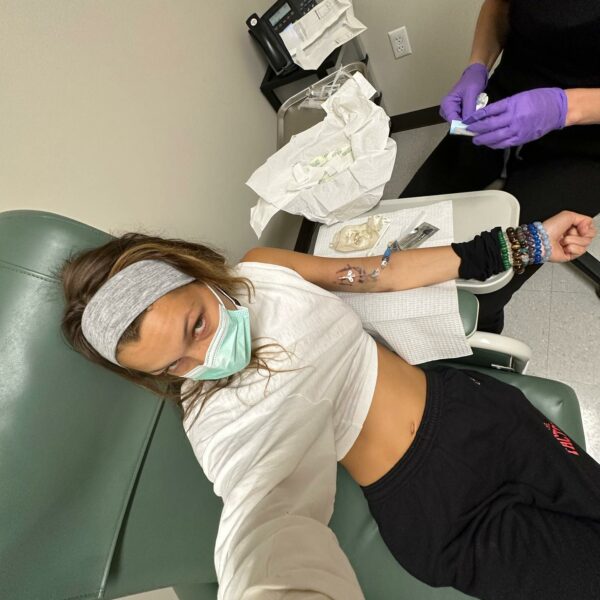Hello again, dear friend Anonymous. Welcome back to our sex talk column where readers submit questions, and we do our research to craft a story that answers as many questions as we can. The topic of our latest submission: what to do when you have a higher libido than your partner.
It can be a tricky situation to navigate. Ofc, you don’t want your partner to feel pressured into having sex, but you also want to be sexually satisfied in your relationship.
So we enlisted renowned sexual medicine practitioner Amy Killen, MD and Medical Advisor to Joi Women’s Wellness, for help.
First off, you’re not the only one going through this.
“Mismatched libidos are very common, especially in long-term couples,” says Dr. Killen. “In fact, there’s even a name for it: Sex Drive Discrepancy (SDD).
According to Dr. Killen, some factors that can contribute to mismatched libidos include hormone changes (pregnancy, birth control, perimenopause, menopause, low testosterone in men, thyroid problems, etc.), medications (e.g. antidepressants, beta blockers), chronic medical problems (e.g. diabetes), depression, fatigue, and stress.
So, yeah, there’s a lotttt going on.
“The most important first step is to talk openly about it,” Dr. Killen states. We know, we know, this is easier said than done. Approaching the topic with empathy and support is a good start.
“Understanding what type of sexual desire you each have can be helpful,” she adds. “It’s completely normal for libido to ebb and flow throughout different seasons of your life.
“Spontaneous sex drive means that desire happens randomly and doesn’t necessarily require stimulation to get going,” Dr. Killen explains. “Responsive sexual desire means they need mental or physical stimulation to get them revved up. It doesn’t just happen, which is a key distinction.”
“For some couples, scheduling sex helps (we’re all busy these days!),” Dr. Killen says.
While scheduled sex may sound, well, clinical, we like to recall something sex therapist Shamyra Howard told us: “Scheduling sex does not make sex less satisfying or less spontaneous, but it shows a commitment to prioritize sexual intimacy.” If you need tips on how to schedule sex, she has plenty more here.
“Creating environments or situations that make sex easier, more fun, and more exciting can also be beneficial,” Dr. Killen says. She gives the example of planning a date night that’s “outside the box” for you. “Being affectionate throughout the day, versus only when expecting sex, can also set the tone for more intimacy later,” she adds.
Remember: “Mismatched libido is completely normal and there’s no one right way to navigate it, but with some effort (and maybe a little compromising), most couples can find their way to a happy middle ground,” Dr. Killen says.






































